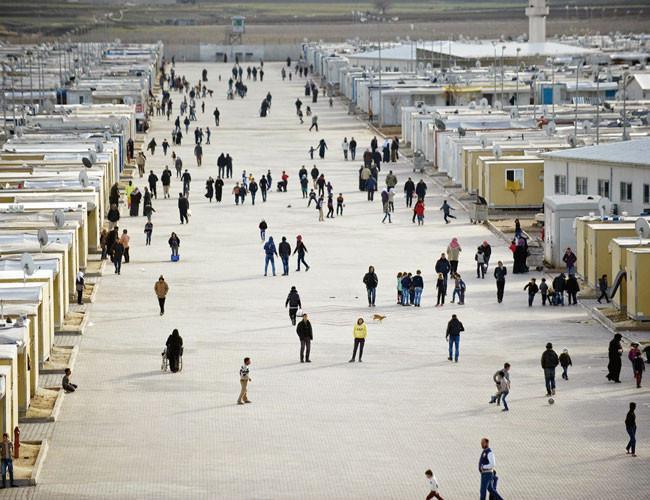
Although polarized on various political issues, the Turkish people share the most similar views over Syrian refugees in the country, a survey conducted by the Istanbul Bilgi University Center for Migration Research in partnership with the German Marshall Fund (GMF) revealed on Feb. 5.
Some 86.2 percent of the survey participants agreed that “Syrians should be sent back to their country once the war in Syria has ended,” according to the findings in the survey titled “Research on Polarization’s Dimensions in Turkey.”
The survey, conducted in 16 Turkish cities with 2004 adult participants above 18 years of age, showed that the largest group that favored Syrians returning to their homelands following the war came from the Good Party (İYİ Party) base, with 94.9 percent of the group responding positively to the question.
Around 92.8 percent of citizens who claimed to support the Republican People’s Party (CHP) also supported the refugees’ return, ranking second in the category.
Nationalist Movement Party (MHP) supporters came third with 88.9 percent, followed by ruling Justice and Development Party (AKP) supporters with 83.2 percent.
Although the lowest, 75.9 percent of Peoples’ Democratic Party (HDP) supporters said they favored the refugees’ return.
The results signaled a sense of solidarity over Syrian refugees. However, Turkish people differed on many other issues, according to the survey conducted to analyze societal polarization.
Issues such as the July 15 coup attempt, political and religious identities, organizational choices and use of media showed a significant differences when looked at through the lenses of different political parties.
For example, 79 percent of the survey participants claimed they would not want their daughter to marry a citizen who comes from the group they “feel most distant to.”
Some 70 percent do not even want to do business with them, or be neighbors, or even allow their kids to play with kids from “the distant” political view.
The feelings change, however, when the issue is the threat the United States poses to Turkey, or when the conversation touches on the issue of Syrian refugees in Turkey.
Turkey currently hosts approximately 4.3 million refugees and has the largest refugee population in the world, according to a two-year study conducted by the Turkish Parliament’s Refugee Subcommittee that operates under the Human Rights Committee.
Of the 4.3 million, 3.4 million are Syrian refugees, the highest number in the world, according to data from the Interior Ministry’s Migration Management Directorate.
Nearly 538,000 Syrians live in Istanbul, a metropolis with a total population of almost 15 million. Syrians therefore make up 3.6 percent of Istanbul’s total population, according to the directorate.
The southeastern province of Şanlıurfa hosts nearly 463,000 Syrians, while over 457,000 Syrians live in the Hatay province on the Turkey-Syria border.
Some 132,000 Syrians live in the southeastern border province of Kilis, while the city’s non-refugee population is about 131,000, making the number of registered Syrians higher than the city’s regular population.
Syria has been locked in a vicious civil war since 2011. Since then, hundreds of thousands of people have been killed in the conflict, according to the U.N.